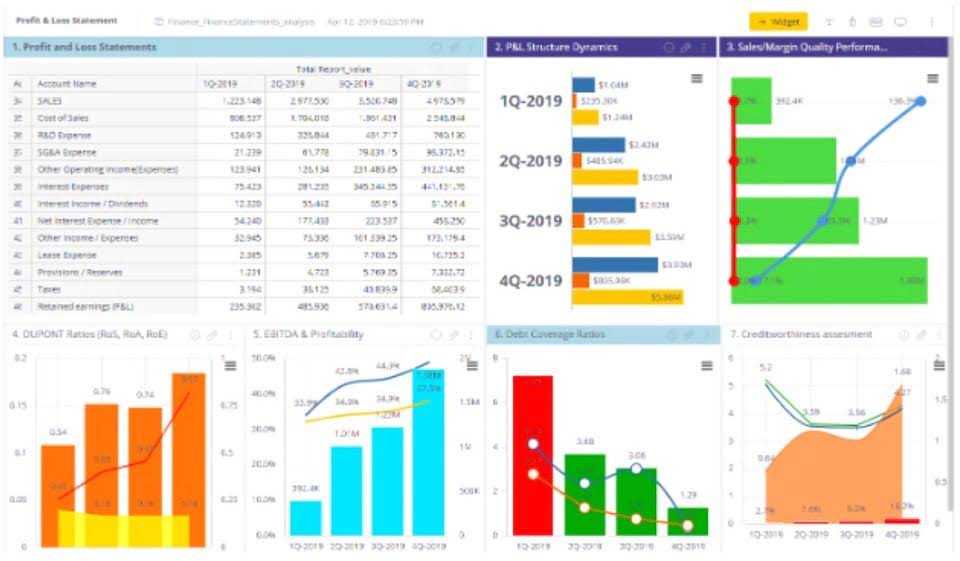Bookkeeping for Interior Designers: What A Top Accountant Wants You to Know

It helps you invoice clients, collect payments, manage expenses, and meet tax deadlines. Proper accounting for interior designers is essential for maintaining a sustainable business model and achieving long-term growth. By leveraging interior design accounting software, you can streamline your financial processes and gain valuable insights interior design bookkeeping into your business’s performance. With the right approach to bookkeeping for interior designers, you can effectively manage recoverable expenses and optimize your business’s financial resources. Accounting for interior designers involves a comprehensive understanding of financial management, from bookkeeping to financial reporting.
- In addition to the Open Purchase Orders report, Priya and Denise also recommend using the “Work in Process” and “Pre-Billing” reports to make sure nothing slips through the cracks.
- Francine is a professor at Pratt Institute’s Interior Design department.
- You bill your clients for the amount of time you spend on their projects, so you need meticulous records about how many hours you’re really logging for a client.
- Keeping track of sales and income tax and submitting filings in a timely manner helps keep your company from defaulting.
The Steps for the Best Workflow Process
Note that there are things that might need closer attention to detail because not everything will automatically transfer to Quickbooks. However, if you have followed our recommendation and hired a bookkeeper who is familiar with the industry, they will likely know what they are doing. This is just another reason to stay in communication with your bookkeeper, to help you get a better idea of the process and of your numbers at the same time. Finally, the bookkeeper assists the accountant or CPA by providing necessary records and information, facilitating accurate tax filings and turnover reports. Payments owed to suppliers, vendors, and contractors need to be issued and recorded systematically to maintain clear financial records.
Ask an Accountant: Six Ways to Manage Your Small Business Finances
This includes materials, subcontractor costs, rent, utilities, and marketing expenses. By categorizing your expenses, you can gain insights into where your money is going. You can also identify any areas of overspending or potential cost savings.
- While most designers are busy with the incessant creative end of the business, it’s easy to overlook the potential financial pitfalls of the industry.
- When we finished, we were able to cut down her tax liability by 70%,” he says.
- Regular bookkeeping allows you to analyze your firm’s performance over time, identify financial mistakes, and spot seasonal profit trends, leading to improved operations.
- Accurately tracking your expenses is crucial for maintaining precise bookkeeping records.
- Also, it helps you avoid potential penalties or audits.
- Even without current investors, generating these reports can be advantageous for attracting future stakeholders who will want to make informed investment decisions.
Maintain detailed records

It involves keeping track of all the money that comes in and goes out of your company, as well as any debts or money to be collected. For interior designers, bookkeeping is crucial due to the complex nature of the business, with multiple stages, participants, paperwork, and accounting involved. Understanding the nuances of interior design bookkeeper responsibilities is essential for maintaining financial transparency and making informed business decisions. Implementing a reliable interior design accounting software can streamline bookkeeping processes and provide accurate insights into your business’s financial health. Utilizing a bookkeeping cheat sheet pdf can further enhance your ability to manage financial data effectively and ensure compliance with industry standards. As an interior designer, you may work with contractors, suppliers, and vendors who provide goods or services for your projects.
You Know Design, We Know Your Business
Investing time and effort into mastering bookkeeping can save you from financial headaches down the line. It provides you with the tools to track your cash flow, manage project costs, and plan for the future. Whether you choose to handle bookkeeping tasks yourself or enlist the help of a professional, the benefits of mastering bookkeeping for interior designers are undeniable.
Track recoverable expenses
Be the first to know about new services, exclusive offers, and tax tips. Finally, boring and arduous as it might seem, it’s necessary to make a schedule for regular bookkeeping activities and stick to it. Being consistent is the key to efficient and impeccable bookkeeping.
Bridging the Gap Between Artistry & Accounting

Budgeting and financial forecasting are essential tools for interior designers. They use these tools to plan and manage their finances. A budget helps you divide funds to different areas of your business. It also helps you set financial goals and track your progress.
- Though no two businesses are the same, clarity and stability in how any business deals with its financials is crucial.
- They should have a thorough understanding of bookkeeping best practices.
- This will ensure that you don’t pay for a customer’s purchase, miss a tax-deductible or forget to collect a reimbursement.
- However, no matter how talented they are, every bookkeeper relies on the employees of the business they are supporting to carry out everyday transactions and record-keeping in the correct manner.
- This will make it easier to report your earnings and claim any relevant deductions.
- This is a lot to keep track so hiring specialized accountants can be a saving grace in assisting you in managing your tax filings.
- With Bench, financial management in the design world has truly been transformed.
With the complex steps involved in each phase of interior design, it makes sense if your bookkeeper is one with an eye for details. Install a system for sending gentle reminders and escalating collection efforts if necessary. Dane Pressner addresses his life and career as a creative and curated design process. Joining D’Aquino Monaco in 2007, his appetite for style, fashion and pop culture have brought a unique perspective to the firm. This strong appreciation for current cultural events is balanced by having spent a number of years working with an antiques dealer.
Recording Payables

It involves organizing your receipts, tracking expenses, and calculating your profitability. Interior Design Bookkeeping is a women-owned business based in Portland, Oregon. We are specialized bookkeepers offering remote services to interior designers around the country. We stay connected to our clients on both coasts utilizing cloud-based technology, online meetings, and the old-fashioned telephone.



